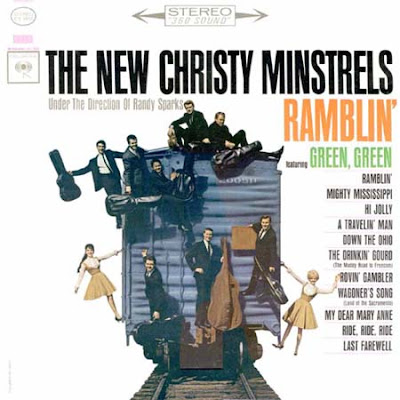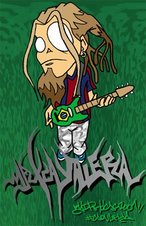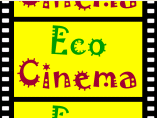
I don't need your LSD,
Head to toe I'm DDT,
DDT on my brain, on my brain.
Can't think like I used to do,
Still I know it's not good for you,
DDT on my brain, on my brain.
They spray the wheat the chickens eat,
It's in my eggs, it's in my meat,
DDT on my brain, on my brain.
It kills the bugs in the apple tree,
I eat the pie and it's killing me,
DDT on my brain, on my brain.
All the farms they get that spray,
It washes down into my Bay,
DDT on my brain, on my brain.
It kills the crabs, it kills the fish,
It shines up from my supper dish,
DDT on my brain, on my brain.
Falcon's flying wild and free,
His babies die of the DDT,
DDT on my brain, on my brain.
Chemical stocks are riding high,
Farm field workers spray and die,
DDT on my brain, on my brain.
Bring back the bugs in my apple tree,
Don't lay that poison spray on me,
DDT on my brain, on my brain.
I don't need your LSD,
DDT is killing me,
DDT on my brain, on my brain.
A song that tells in brief all about the DDT impacts to nature, food chain, human and animal health. Once considered a blessing and salvation for malaria quickly it shows that it was a curse that came to stay. Even today, after the mass production and use in 40s-50s and the banning afterwards, DDT is present even in arctic areas through atmospheric circulation and animal migration. We read in wikipedia:
In 1962, "Silent Spring" by American biologist Rachel Carson was published. The book catalogued the environmental impacts of the indiscriminate spraying of DDT in the US and questioned the logic of releasing large amounts of chemicals into the environment without fully understanding their effects on ecology or human health. The book suggested that DDT and other pesticides may cause cancer and that their agricultural use was a threat to wildlife, particularly birds. Its publication was one of the signature events in the birth of the environmental movement. Silent Spring resulted in a large public outcry that eventually led to most uses of DDT being banned in the US in 1972.
 DDT was subsequently banned for agricultural use worldwide under the Stockholm Convention, but its limited use in disease vector control continues to this day in certain parts of the world and remains controversial. Along with the passage of the Endangered Species Act, the US ban on DDT is cited by scientists as a major factor in the comeback of the bald eagle in the contiguous US.
DDT was subsequently banned for agricultural use worldwide under the Stockholm Convention, but its limited use in disease vector control continues to this day in certain parts of the world and remains controversial. Along with the passage of the Endangered Species Act, the US ban on DDT is cited by scientists as a major factor in the comeback of the bald eagle in the contiguous US.
DDT is a persistent organic pollutant that is extremely hydrophobic and strongly absorbed by soils. Depending on conditions, its soil half life can range from 22 days to 30 years. When applied to aquatic ecosystems it is quickly absorbed by organisms and by soil or it evaporates, leaving little DDT dissolved in the water itself. Its breakdown products and metabolites, DDE and DDD, are also highly persistent and have similar chemical and physical properties.These products together are known as "total DDT". DDT and its breakdown products are transported from warmer regions of the world to the Arctic by the phenomenon of global distillation, where they then accumulate in the region's food web.
 DDT, DDE, and DDD magnify through the food chain, with apex predators such as raptors having a higher concentration of the chemicals than other animals sharing the same environment. They are stored mainly in body fat. In the United States, human blood and fat tissue samples collected in the early 1970s showed detectable levels in all samples. A study conducted in the late 1970s after the U.S. DDT ban found that blood levels were declining, but DDT or metabolites were still found in a high proportion of samples. Biomonitoring conducted by the Centers for Disease Control as recently as 2002 shows that more than half of subjects tested had detectable levels of DDT or metabolites in their blood,and of the 700+ milk samples tested by the USDA in 2005, 85% had detectable levels of DDE.
DDT, DDE, and DDD magnify through the food chain, with apex predators such as raptors having a higher concentration of the chemicals than other animals sharing the same environment. They are stored mainly in body fat. In the United States, human blood and fat tissue samples collected in the early 1970s showed detectable levels in all samples. A study conducted in the late 1970s after the U.S. DDT ban found that blood levels were declining, but DDT or metabolites were still found in a high proportion of samples. Biomonitoring conducted by the Centers for Disease Control as recently as 2002 shows that more than half of subjects tested had detectable levels of DDT or metabolites in their blood,and of the 700+ milk samples tested by the USDA in 2005, 85% had detectable levels of DDE.
DDT was a major reason for the decline of the bald eagle in North America in the 1950s and 1960s as well as the brown pelican and the peregrine falcon. DDT and its breakdown products are toxic to embryos and disrupts calcium absorption, thereby impairing eggshell quality. DDT is also highly toxic to aquatic life, including crayfish, daphnids, sea shrimp and many species of fish.
You can hear a Malvina's song (No hole in my hand)in youtube































